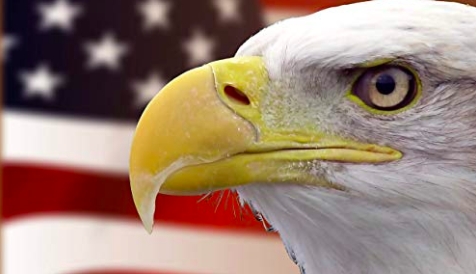Andrew Anglin
Daily Stormer
August 9, 2019
This seems unlikely to actually work.
But hey.
All news is good news or however that saying goes, right?
The White House is circulating drafts of a proposed executive order that would address allegations of anti-conservative bias by social media companies, according to a White House official and two other people familiar with the matter — a month after President Donald Trump pledged to explore “all regulatory and legislative solutions” on the issue.
None of the three would describe the contents of the order, which one person cautioned has already taken many different forms and remains in flux. But its existence, and the deliberations surrounding it, are evidence that the administration is taking a serious look at wielding the federal government’s power against Silicon Valley.
“If the internet is going to be presented as this egalitarian platform and most of Twitter is liberal cesspools of venom, then at least the president wants some fairness in the system,” the White House official said. “But look, we also think that social media plays a vital role. They have a vital role and an increasing responsibility to the culture that has helped make them so profitable and so prominent.”
Two other people knowledgeable about the discussions also confirmed the existence of the draft order.
None of the three people could say what penalties, if any, the order would envision for companies deemed to be censoring political viewpoints. The order, which deals with other topics besides tech bias, is still in the early drafting stages and is not expected to be issued imminently.
“The President announced at this month’s social media summit that we were going to address this and the administration is exploring all policy solutions,” a second White House official said Wednesday when asked about the draft order.
Accusations of anti-conservative bias have become a frequent rallying cry for Trump and his supporters, seizing on incidents in which tech platforms like Facebook, Twitter and Google-owned YouTube have banned people like InfoWars founder and conspiracy theorist Alex Jones or faced accusations of squelching posts by pro-Trump social media personalities Diamond and Silk.
The companies have denied the allegations of bias, though they say they have blocked or removed users who violate community standards policies. They have also faced complaints from liberal activists that they’re too slow to remove hate speech, a category that some say includes Trump’s own tweets.
The issue took center stage during a White House gathering in July in which Trump railed against censorship in front of a roomful of online conservative activists, and directed his administration to explore all “regulatory and legislative solutions to protect free speech and the free-speech rights of all Americans.” Just this week, Trump warned that he is “watching Google very closely,” citing the case of an engineer who has claimed the company fired him for his conservative views.
He tweeted this just as 8chan was being shut down.
.@sundarpichai of Google was in the Oval Office working very hard to explain how much he liked me, what a great job the Administration is doing, that Google was not involved with China’s military, that they didn’t help Crooked Hillary over me in the 2016 Election, & that they…
— Donald J. Trump (@realDonaldTrump) August 6, 2019
… are NOT planning to illegally subvert the 2020 Election despite all that has been said to the contrary. It all sounded good until I watched Kevin Cernekee, a Google engineer, say terrible things about what they did in 2016 and that they want to “Make sure that Trump losses…
— Donald J. Trump (@realDonaldTrump) August 6, 2019
…in 2020.” Lou Dobbs stated that this is a fraud on the American public. @peterschweizer stated with certainty that they suppressed negative stories on Hillary Clinton, and boosted negative stories on Donald Trump. All very illegal. We are watching Google very closely!
— Donald J. Trump (@realDonaldTrump) August 6, 2019
I think it was probably a shout-out to 8chan.
But the White House effort may be complicated by skepticism in some agencies involved in the discussions about tech policy. The Republicans at the Federal Communications Commission and Federal Trade Commission have said publicly that they don’t see a role for their agencies in policing companies’ online content. The FCC and FTC have joined the Justice and Commerce departments in discussions about the potential bias crackdown.
“There’s very little in terms of direct regulation the federal government can do without congressional action, and frankly I think that’s a positive thing,” said John Morris, who handled internet policy issues at the Commerce Department’s National Telecommunications and Information Administration before leaving in May.
He added: “Although the government may be able to support and assist online platforms’ efforts to reduce hate and violence online, the government should not try to impose speech regulations on private platforms. As politicians from both sides of the political spectrum have historically urged, the government should not be in the business of regulating speech.”
This discussion boggles my entire mind.
“The government shouldn’t be in the business of protecting our First Amendment rights, because that would be regulating speech.”
Imagine if it was: “the government shouldn’t be in the business of preventing people from being murdered, because that would be regulating death.”
What these companies are claiming is that because they are private companies, they have an absolute right to do whatever they want to anyone, and that the functioning of a private company cannot be regulated by the government. At least, the functioning of the most powerful companies on earth can’t be regulated by the government – small businesses can be forced to bake anal cakes and hire women and black people.
While murder might seem like a drastic comparison to what they are doing, you could certainly compare it to the fact that hospital emergency rooms are not allowed to deny service to anyone.
These companies are natural monopolies. And they have total control of the public square.
What they are is “common carriers.”
A common carrier in common law countries (corresponding to a public carrier as it may be presented in some civil law systems, usually called simply a carrier) is a person or company that transports goods or people for any person or company and that is responsible for any possible loss of the goods during transport. A common carrier offers its services to the general public under license or authority provided by a regulatory body. The regulatory body has usually been granted “ministerial authority” by the legislation that created it. The regulatory body may create, interpret, and enforce its regulations upon the common carrier (subject to judicial review) with independence and finality, as long as it acts within the bounds of the enabling legislation.
As common carriers, they should be regulated, and they should be subject to the same “universal service” policies that other telecommunications services are subjected to.
Universal service is an economic, legal and business term used mostly in regulated industries, referring to the practice of providing a baseline level of services to every resident of a country. An example of this concept is found in the US Telecommunications Act of 1996, whose goals are:
- to promote the availability of quality services at just, reasonable, and affordable rates
- to increase access to advanced telecommunications services throughout the Nation
- to advance the availability of such services to all consumers, including those in low income, rural, insular, and high cost areas at rates that are reasonably comparable to those charged in urban areas
What is being said is that in order to add Google, Twitter and Facebook to the list of common carriers forced to provide universal service, the Congress would have to pass a new Telecommunications Act.
But I don’t know if that is even true.
The Telecommunications Act of 1996 gives wide-ranging powers to the FCC. And Obama in 2015 successfully pushed through Net Neutrality without passing any law – he just told the FCC to do it.
Of course, a court had to uphold that law, and maybe they would not uphold a decision to give freedom of speech to the people.
I don’t know.
What I do know is that it would be worth trying.
These people have a motherfucking gun to our heads!
If it doesn’t work, then the government should create all of its own services for the people to use – including a YouTube, Google, Twitter and Facebook clone, along with a domain registry and a DDoS protection/CDN service.
The people have a right to use the motherfucking internet. Private companies don’t have a right to just control the entire thing and tell us we can’t be on it. Our tax dollars paid to develop this technology and they paid to build much or most of the infrastructure. It belongs to the people and not these companies.
It is good news, whatever the case, that Trump is finally going to try to do something.
If Trump succeeds in giving us back our freedom of speech, then I don’t even care if he gives teleprompter speeches saying all whites deserve to be executed.
I honestly don’t care about anything else.
I just want my freedoms back.




